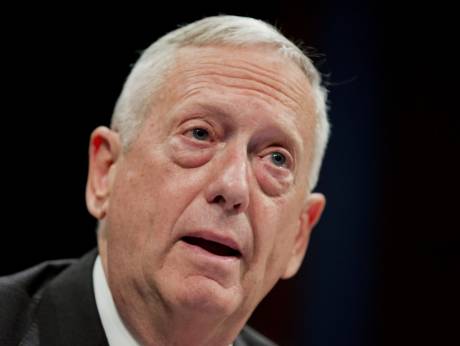Washington Post
Ruben Gallego
 As a combat veteran of the Marine Corps and a longtime admirer of General James Mattis, I was sad to announce earlier this month that I could not in good conscience support granting him a waiver to serve as America’s 26th secretary of defence.
As a combat veteran of the Marine Corps and a longtime admirer of General James Mattis, I was sad to announce earlier this month that I could not in good conscience support granting him a waiver to serve as America’s 26th secretary of defence.
I explained that my decision was motivated not by political considerations but by concern for the enduring American principle of civilian control of the military. I lauded Mattis’ eminent qualifications and leadership skills while affirming that this central tenet of American democracy should matter more than any single individual.
What happened next was revealing.
Despite my considered words, I got an earful from Marines across the United States, including men I served alongside in Iraq. They called and wrote letters. They tweeted and texted. In some colourful language that I can’t repeat in this space, they questioned my loyalty to the Marine Corps and to America. Paradoxically, their passionate defence of Mattis and their anger towards me confirmed my reservations about his appointment. For me, the reaction immediately verified the wisdom of Congress in establishing a cooling-off period for former military leaders. The anger that my stance elicited among many of my fellow Marines demonstrated, albeit on a small scale, the danger to American democracy of a defence secretary coming to power with the ardent loyalty of the men and women he recently commanded.
The members of Congress who, in 1947, enshrined in law this period of separation had fresh memories of the Second World War. Like America’s Founding Fathers, they recognised that political leaders should derive their authority from the will of the people — not the personal fealty of members of the armed forces. As a result, they were wary of a decorated general slipping off his uniform and immediately stepping into an ostensibly civilian role. In addition, they were justifiably apprehensive about installing a secretary of defence who could be perceived as partial to one service over the others.
More than a half-century later, these concerns are still highly relevant. Americans should ask themselves whether the reputation of their military as a highly professional, nonpartisan institution would be tainted if its most respected leaders were allowed to seamlessly segue into political positions. That’s why, instead of simply rubber-stamping President-elect Donald Trump’s choice, it is critical that they engage in a meaningful debate before discarding this well-established precedent.
The last time a recently-retired military man, George Marshall, was permitted to lead the Pentagon, the US was facing the prospect of ignominious defeat in the Korean War. Even then, congressional leaders specified that his waiver was a one-time exception to the rule. While America must confront an array of threats today, none of its national security challenges remotely compares to a massive war in the Far East. This history should inform Congress’ decision about Mattis.




